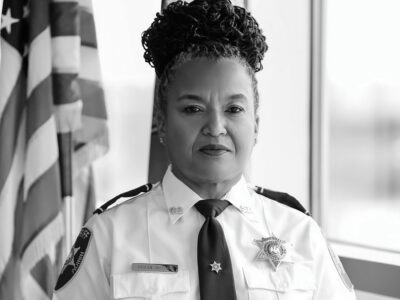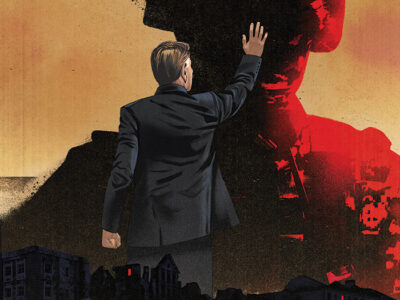
When the hijacked planes crashed into the Twin Towers of the World Trade Center on September 11, 2001, killing 3,000 Americans, how many “occurrences” were involved? The question, put to a federal jury in 2004, was more than an exercise in legal semantics, and the answer would have profound implications, both for the City of New York and the state of the insurance industry. At stake was about $3.5 billion in coverage, the insurers’ combined “per occurrence” policy limits.
The insurers argued that both events were part of the same, single attack and “occurrence.” The owners of the World Trade Center property believed that since there were two separate planes and towers, there were therefore two occurrences. For John Gross W’64, the owners’ attorney, the task was to make the jury also believe the answer was two.
As he researched disputed insurance cases throughout the United States, Gross finally found one that provided a Grisham-esque “smoking gun.” In it, the Travelers Insurance Company had decided that fires set by one arsonist at four different California courthouses should be viewed as four separate events. Gross felt that this would be compelling precedent.
The jury agreed with him.
“This case wasn’t just about the World Trade Center—it was about New York,” he says now. “All the jury needed was a viewfinder into the insurance companies’ true motivations. The arsons made the picture crystal clear.
“The reason that the World Trade Center case was important to me personally is that our recovery of insurance monies will help rebuild at the World Trade Center site and show the terrorists we cannot be defeated,” he adds.
His ability to convince a jury that one plus one = two should not be taken to mean that Gross missed his real calling in mathematics.
“When I was at Wharton, I considered becoming an economist,” he recalls. Then he took advanced calculus—an experience that convinced him that he might be better suited to another profession, like the law.
Still, his time at Wharton wasn’t wasted, given that he is now, as a partner at Proskauer Rose, one of New York’s preeminent business litigators. “Much of what I do involves litigating complex business disputes,” Gross says. “So knowledge of finance, real estate, insurance, and other business subjects is very helpful.”
The World Trade Center victory was far from an anomaly in his career. In 1969 Gross left his position as an associate at the New York firm Sullivan & Cromwell to join the federal prosecutor’s office in the Southern District of New York. He loved the job.
“Every day I spent as a federal prosecutor … was a favorite moment in my career,” Gross says. “The ages of the lawyers ranged from 25 to 35, and we were given responsibility usually reserved for senior partners in a law firm. The cases we tried were important and exciting. If you like being a trial lawyer, that was the place to be.”
Gross tried the case against Lt. John Egan, who, along with other corrupt policemen, was accused of having stolen the heroin confiscated in the French Connection case. “He was in charge of a totally corrupt narcotics division of the NYPD,” Gross recalls. Egan was convicted.
During his five years as an assistant United States attorney, he worked side-by-side with another assistant DA named Rudy Giuliani in a Federal Housing Authority fraud case, police-corruption cases, and international narcotics cases.
“He was best man at my wedding, and we remain good friends,” Gross says. “He was a terrific lawyer and an even better mayor. New York City was in decline, and he turned it around.” Gross served as treasurer of Giuliani’s 1993 mayoral campaign and as chairman of his 1997 reelection campaign.
After his stint as an associate U.S. attorney, Gross was asked to become an associate special counsel in investigating the funding of President Jimmy Carter’s presidential campaign. Gross conducted a grand-jury investigation for six months in Atlanta, looking into allegations of criminal activity. “Taking [Carter’s] deposition in the Treaty Room of the White House was historic,” says Gross. “Our investigation cleared him of any wrongdoing.”
Subsequently, Gross made the transition to the private practice of law. He was made a partner at the New York law firm of Anderson Kill, where he became involved in insurance litigation. He later became a partner at Proskauer Rose.
“For the last 20 years, I have represented large companies in complex civil litigation involving large amounts of money,” Gross said. “It has been very intellectually challenging, and I have worked with and against very smart people. But it’s not cops and robbers.”
—Jordana Horn Marinoff C’95 L’99




